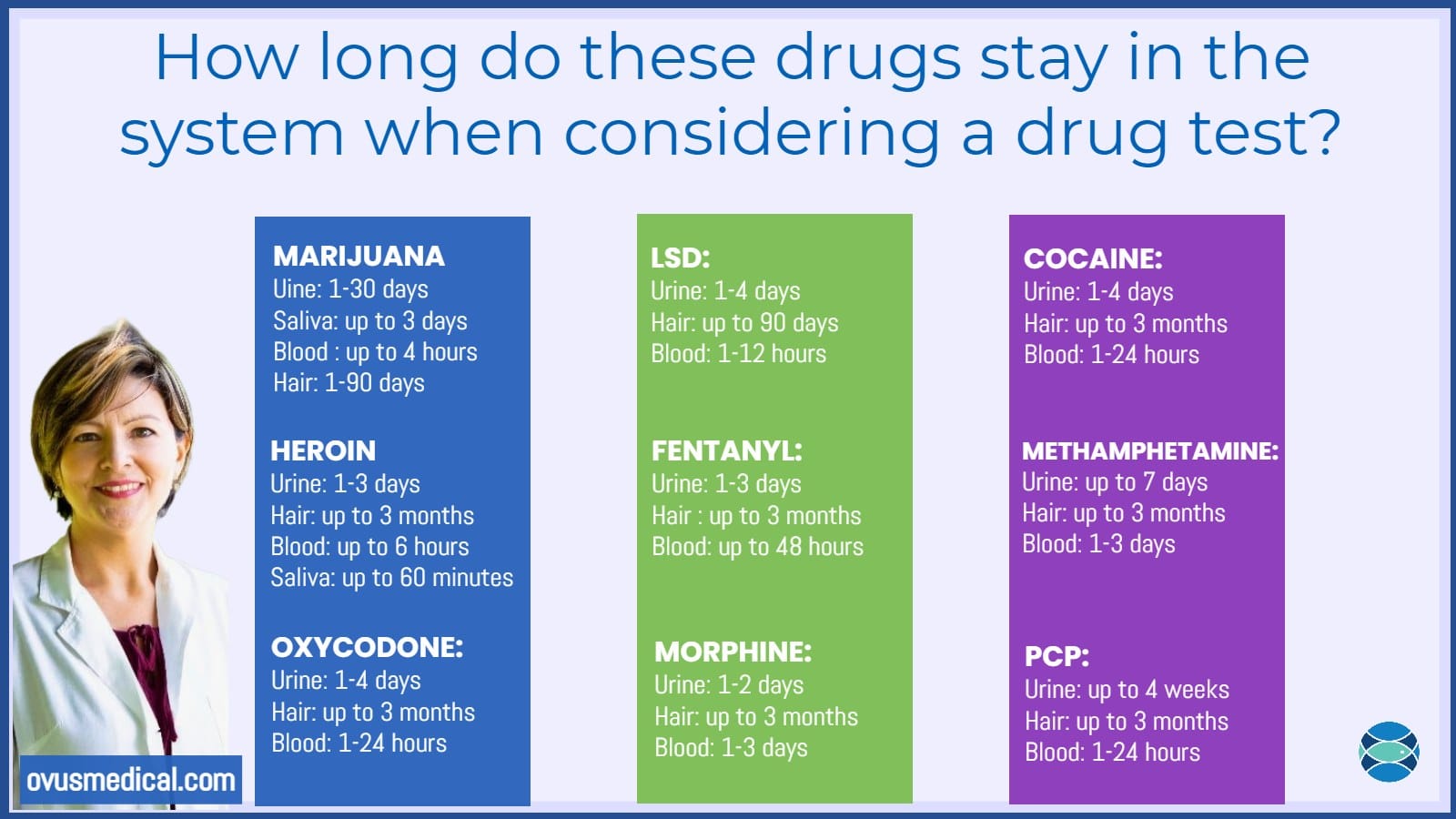A drug test report can make all the difference in whether you win or lose a family law lawsuit. Drug testing procedures are designed to detect illegal drugs, alcohol, or prescription drug use. As a result, in some instances, drug and alcohol testing becomes an essential obligation imposed by professionals to make vital decisions.
So, whether your client is currently undergoing drug testing. It is intending to request a drug test for a critical situation. Here 5 Drug Testing Points to keep in mind as their family lawyer.

In a number of court instances, drug testing and DNA testing have been used.
Whether you’re dealing with grandparent’s rights, trust funds, child custody, or domestic abuse, drug testing can be an important part of any case. You should aware of potential drug use by anyone in your client’s home. Addition to having your client tested for drug use. This will enable you to improve your client’s case’s chances of success.
A family lawyer should have a professional lab to count on
As a family lawyer, you must constantly keep in mind that. The outcome of a drug test might have a substantial impact on your chances of winning a case. Having a reputable and well-experienced drug testing business in your contacts can thus assist you in obtaining an accurate and clear image of the situation. Establishing acquainted ties with a DNA testing professional will also be of great use when it comes to paternity or child support claims.
Purchase Drug Tests HereIn the event of domestic violence, a family lawyer should be aware of drug testing.
Domestic violence and child abuse are frequently caused by drug usage. As a result, as a family lawyer, you should always be prepared to refer clients. Who have been victims of domestic abuse to local resources. To secure an order of safe shelter protection for the victims, you should be well-prepared. As a result, once the client and children are no longer in danger, you should begin discussing drug testing with a reputable lab professional, as well as counseling and rehab institutions.
In court, not all labs or testing services are admissible.
It’s natural for your customer to be enticed by the simplicity of home drug testing kits. Given their expanding visibility and popularity. However, due to the possibility of change, contamination, and the lack of a specific donor identity, the results of these home-testing kits are not legally admissible in court. As a result, if you conduct drug tests for a customer. Make sure to enlist the help of a reputable lab professional.
5 Drug Testing Points
A drug test can detect the use of a substance from an hour to twelve months ago, depending on the type of drug test specimen. Urine tests, for example, are common forms of drug testing, but hair, blood, saliva, and nails are also used in drug testing to assist you figure out the story to back up your client’s claim. Furthermore, there are particular tests that can detect drug use by anyone in a child’s family.
Drug Testing Insights Every Family Lawyer Should Know
Navigating the complexities of family law is no small feat. Whether you’re handling child custody battles, trust fund disputes, or cases of domestic abuse, understanding the implications of drug testing can be crucial for your case. In this blog post, we’ll explore five essential drug testing points that every family lawyer should keep in mind to ensure you have the tools to build a strong, compelling case.
Understanding the Role of Drug Testing in Family Law
The Importance of Drug Testing in Court Cases
In the realm of family law, drug testing can play a pivotal role in various legal situations. From determining parental fitness in custody cases to ensuring the safety of children in homes where substance abuse is suspected, drug tests provide critical evidence that can significantly influence court outcomes. By leveraging accurate drug testing results, you can better advocate for your client’s best interests.
Types of Cases Where Drug Testing is Crucial
Drug testing is not limited to one type of case; it spans multiple areas of family law. Whether you’re dealing with issues related to grandparent’s rights, trust funds, or domestic violence, the presence of substance abuse can complicate the legal landscape. Being prepared with reliable drug testing data allows you to address these complications head-on, offering clear, factual information to support your client’s case.
The Value of Accurate and Timely Testing
Accuracy and timeliness are key when it comes to drug testing. False positives, delayed results, or tests that are not admissible in court can jeopardize your case. Therefore, establishing a relationship with a reputable lab that provides prompt and accurate testing services is imperative. This ensures that you have the most reliable evidence to present in court.
Building a Relationship with a Professional Lab
Why You Need a Trusted Lab Partner
As a family lawyer, having a dependable drug testing lab is not just beneficial—it’s essential. The outcome of a drug test can dramatically sway the direction of a case, making it crucial to work with a lab that delivers precise and legally defensible results. A trusted lab partner will help you obtain a comprehensive understanding of the situation at hand, allowing you to formulate a stronger argument.
How to Choose the Right Lab
When selecting a lab, consider their experience, certifications, and the range of tests they offer. Look for labs that are accredited by recognized bodies such as the Substance Abuse and Mental Health Services Administration (SAMHSA). Additionally, labs that provide detailed reports and expert testimony can be invaluable assets in court proceedings.
The Benefits of Long-term Collaboration
Establishing a long-term relationship with a drug testing lab can yield numerous benefits. Over time, you’ll develop a mutual understanding, streamline communication processes, and gain quicker access to testing results. This consistent partnership ensures that you always have a reliable resource to turn to when the need for drug testing arises.
Addressing Drug Use in Domestic Violence Cases
The Link Between Substance Abuse and Domestic Violence
Substance abuse is often a contributing factor in cases of domestic violence and child abuse. Recognizing this connection is crucial for family lawyers who need to take swift action to protect their clients. By understanding the signs of substance abuse and incorporating drug testing into your strategy, you can better advocate for the safety and well-being of those involved.
Steps to Take When Domestic Violence is Suspected
When domestic violence is suspected, immediate action is necessary. Secure orders of protection and safe shelter for the victims. Once safety is ensured, discuss the importance of drug testing with your client and refer them to reputable labs for testing. This not only provides evidence of substance abuse but also supports the need for further intervention, such as counseling or rehab.
Partnering with Local Resources
In addition to drug testing, connecting clients with local resources for counseling and rehabilitation is essential. Establish a network of trusted professionals and organizations that specialize in helping victims of domestic violence. By offering comprehensive support, you can help your clients rebuild their lives while strengthening your case with credible evidence.
Navigating the Legality of Drug Test Results
The Admissibility of Drug Tests in Court
Not all drug testing results are admissible in court. Home testing kits, while convenient, are prone to tampering and lack the chain of custody required for legal proceedings. Ensure that any drug tests presented as evidence come from accredited labs that follow strict protocols, guaranteeing their acceptance in court.
Common Pitfalls to Avoid
One common pitfall is relying on outdated or incomplete testing methods. Stay informed about the latest advancements in drug testing technology and protocols. Additionally, avoid using labs with a history of inaccurate results or unprofessional conduct, as this can undermine your case’s credibility.
Ensuring Chain of Custody
Maintaining the chain of custody for drug test samples is crucial. This process documents the handling of the sample from collection to analysis, ensuring its integrity. Work with labs that have robust chain of custody procedures to prevent any challenges to the validity of the test results in court.
Exploring Different Types of Drug Tests
Urine Tests
Urine tests are one of the most common forms of drug testing. They are non-invasive, cost-effective, and can detect recent drug use. However, they have a shorter detection window compared to other methods, making them less effective for identifying long-term substance abuse.
Hair, Blood, Saliva, and Nail Tests
Different specimens offer varying detection windows and levels of accuracy:
- Hair Tests: Can detect drug use over a longer period (up to 90 days) but cannot identify recent use.
- Blood Tests: Highly accurate but invasive and more expensive, suitable for detecting current impairment.
- Saliva Tests: Non-invasive and can detect recent drug use, but have a shorter detection window.
- Nail Tests: Similar to hair tests in detecting long-term use, but less common and more expensive.
Choosing the Right Test for Your Case
The choice of drug test depends on the specifics of your case. For instance, if you need to demonstrate a pattern of long-term drug use, hair or nail tests may be more appropriate. For cases requiring proof of recent use, urine or saliva tests are more suitable. Consult with your lab partner to determine the best testing method for your needs.
5 Drug Testing Points to Consider for Drug Testing
- Purpose of Testing: Clearly define the goal of the drug test. Is it for workplace compliance, legal evidence, or medical diagnosis? The purpose will guide the selection of the appropriate test type and specimen.
- Detection Window: Understand the detection window of each testing method. Urine tests are ideal for recent exposure, while hair and nail tests are better for detecting long-term substance use.
- Accuracy and Reliability: Assess the accuracy and reliability of each testing method. Blood tests offer high accuracy but are invasive, whereas saliva tests are less invasive but have shorter detection windows.
- Cost and Availability: Consider the cost and availability of each testing method. Urine tests are generally more affordable and widely available, whereas nail tests can be more expensive and less commonly offered.
- Legal and Ethical Considerations: Ensure that the drug testing process complies with legal and ethical standards. This includes obtaining proper consent and maintaining confidentiality to avoid potential legal challenges.
Conclusion
Drug testing is a powerful tool in the arsenal of family lawyers. By understanding the nuances of different testing methods, establishing relationships with reputable labs, and integrating drug testing into your legal strategy, you can better serve your clients and enhance your case’s success. Remember, the key to effective advocacy lies in thorough preparation and leveraging all available resources to present a compelling, evidence-based argument. For further assistance, consider consulting with a professional lab to ensure accuracy and reliability in all your drug testing needs.

